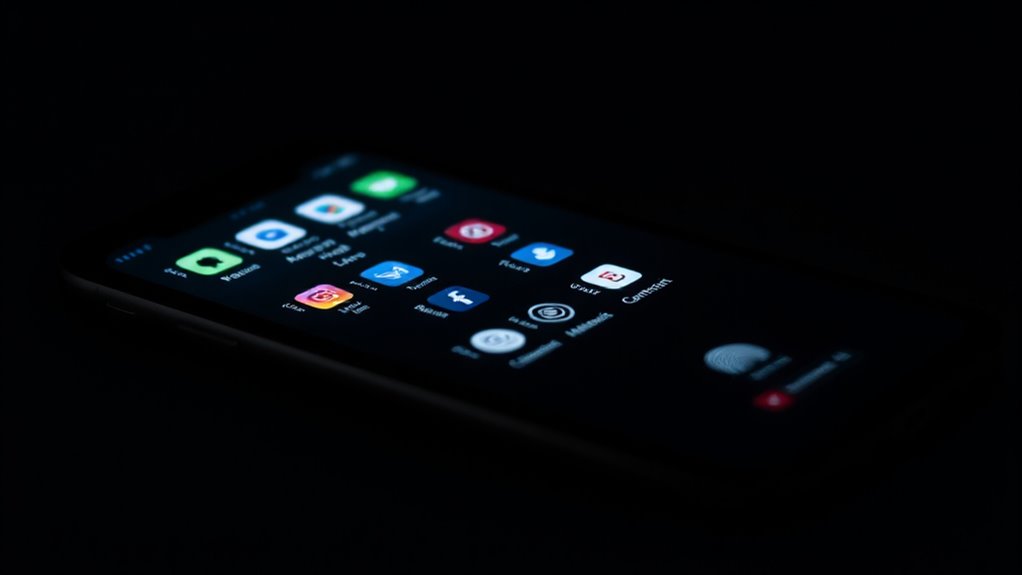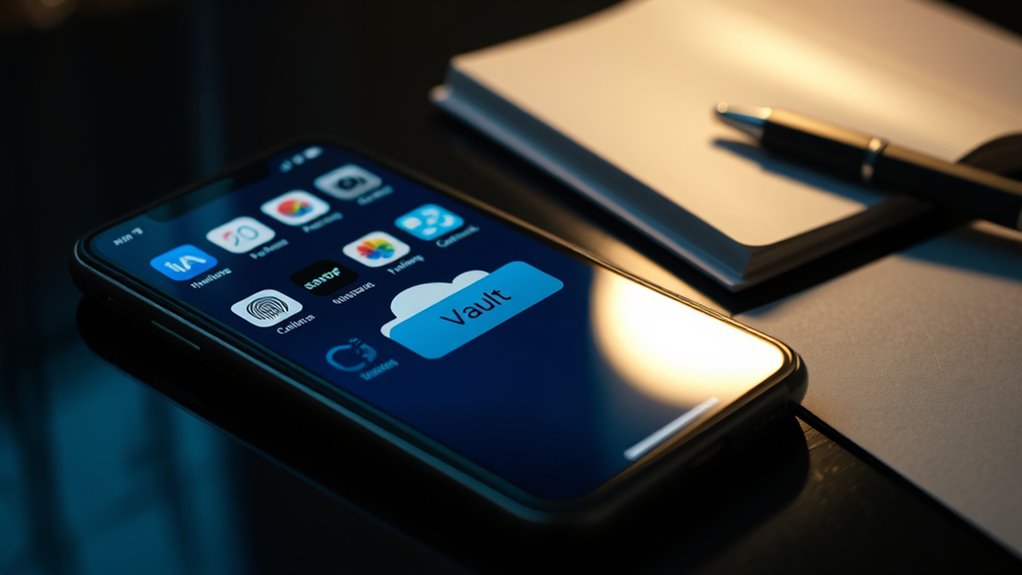Hidden apps and vaults are secret tools designed to keep your private information safe by hiding sensitive files, apps, or data from plain sight. People use them for privacy, security, or to prevent anyone from accessing certain content without permission. While some may have malicious motives, many legit reasons exist to protect personal or confidential information. If you want to understand how these tools work and when they’re useful, keep exploring further.

Many people hide apps and vaults on their devices to protect sensitive information or keep their private activities discreet. This isn’t just about avoiding prying eyes; it’s often about maintaining personal security and privacy in a digital world where data breaches and identity theft are real threats. You might hide a banking app, a messaging platform, or a photo gallery containing private memories to prevent accidental exposure or to keep certain details away from curious family members or colleagues. These hidden apps and vaults act as a barrier, creating a layer of security that’s not immediately obvious to anyone who picks up your device.
You may wonder how these hidden apps work. Many smartphones offer a built-in feature to hide apps, or you can use third-party apps designed specifically for this purpose. Vault apps often function as secure containers within your device, requiring a password, PIN, or biometric verification to access. Once unlocked, they reveal their contents—be it photos, videos, documents, or even messages—without cluttering your main app drawer or home screen. This way, you’re able to keep sensitive data segregated from casual browsing or everyday use. The beauty of these vaults lies in their simplicity; they provide quick access for you but remain invisible or inaccessible to others without your credentials.
Legit reasons for using hidden apps and vaults go beyond mere privacy. For example, some people hide apps to reduce clutter on their home screens, keeping only their most-used tools front and center. Others do it to organize sensitive work-related information, such as confidential reports or client details, ensuring that accidental taps or unintentional sharing don’t happen. Parents might hide certain apps to prevent children from accessing inappropriate content, while professionals could use vaults to store personal data separate from work apps, maintaining clear boundaries. In some cases, individuals hide apps to protect themselves from stalking or harassment, adding an extra layer of security to their digital lives.
While some might see hiding apps as a way to conceal illicit activities, it’s important to recognize that many legitimate reasons exist. Privacy is a fundamental right, and securing your personal data against unauthorized access is responsible digital behavior. As long as you’re using these tools ethically, they serve as valuable safeguards rather than clandestine shortcuts. Ultimately, hidden apps and vaults help you take control of your information, ensuring your private moments stay private and your sensitive data remains protected from prying eyes.
Frequently Asked Questions
Can Hidden Apps Be Used to Hide Illegal Content?
Yes, hidden apps can be used to hide illegal content, but it’s not the intended purpose. People sometimes use these apps to conceal sensitive or private information, which can include illegal material. However, hiding illegal content is illegal and punishable by law. If you suspect someone is hiding illegal activities with these apps, it’s important to report it to authorities rather than trying to access or handle it yourself.
How Do I Detect Hidden Apps on My Device?
You can detect hidden apps on your device by checking your app list for anything unfamiliar or out of place. Use your device’s settings or a trusted security app to scan for hidden or suspicious software. Look for apps that don’t appear on your home screen or app drawer, and review permissions. Regularly updating your software also helps identify and remove hidden or malicious apps, keeping your device secure.
Are Vault Apps Completely Secure From Hacking?
Vault apps are not completely secure from hacking. While they add a layer of protection, savvy hackers can still find ways to bypass them, especially if your device isn’t fully updated or if you use weak passwords. To better protect your data, use strong, unique passwords, enable two-factor authentication, and keep your device’s software current. Remember, no app is entirely foolproof, so stay vigilant.
Can Children Access Hidden Apps or Vaults Easily?
You might think kids can’t access hidden apps or vaults easily, but that’s not always true—some kids are like digital ninjas, swiftly bypassing security. While apps often have password protections and hidden features, tech-savvy children can sometimes find ways around them. So, it’s essential to set strong passwords, monitor device use, and educate kids about responsible digital habits to prevent unauthorized access.
Do All Smartphones Have Built-In Hidden App Features?
Not all smartphones have built-in hidden app features, but many do offer options to hide or secure apps. Manufacturers like Samsung, Apple, and Google include such functions in their settings or through third-party apps. You should check your device’s settings or app store for options. Keep in mind, creating hidden apps or vaults can help protect your privacy, but not all phones provide this feature natively.
Conclusion
In the end, hidden apps and vaults are like secret compartments in a busy backpack—they can hold important things or hide what you want private. While some use them for privacy, others might do so for less honest reasons. It’s crucial to understand their purpose and use them wisely, like a seasoned explorer. Remember, just because you can hide something doesn’t mean you should—trust your judgment and keep your digital life secure.








